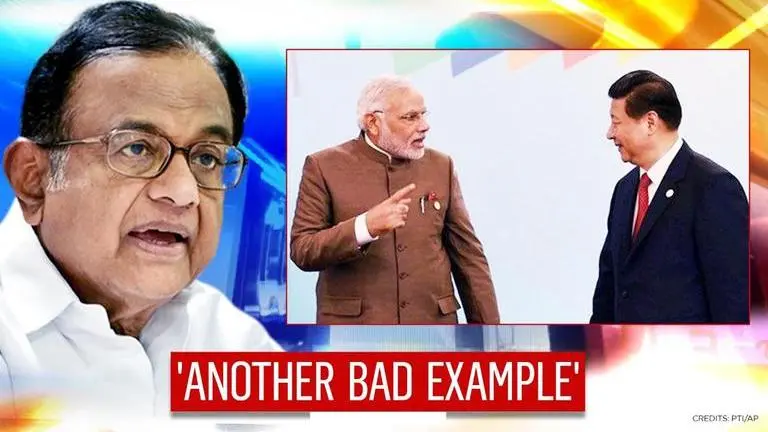Updated 16 November 2020 at 13:14 IST
Chidambaram argues both sides of India staying out of RCEP; attacks Centre over decision
Fifteen Asia-Pacific nations, including China, on Sunday, signed the RCEP. Congress leader P Chidambaram has questioned India's decision to back out of the RCEP
- India News
- 3 min read

Fifteen Asia-Pacific nations, including China, on Sunday, signed the world's biggest trade agreement, the Regional Comprehensive Economic Partnership (RCEP), with India deciding to stay out of it. Commenting on India's decision, Senior Congress leader and former Finance Minister P Chidambaram on Monday has opined there are pros and cons to India joining/not joining RCEP and hit out over the Opposition not being asked to weigh in.
'There are pros and cons to India joining RCEP'
Taking to Twitter, Chidambaram stated that the debate regarding India joining RCEP has never taken place in Parliament or among the people or involving the Opposition parties. "It is another bad example of centralised decision-making unacceptable in a democracy," he wrote, months after India decided it would not be joining.
RCEP born, it is the world’s largest trading body
— P. Chidambaram (@PChidambaram_IN) November 16, 2020
15 nations in our region are members of RCEP, India is not among them
There are pros and cons to India joining RCEP. But the debate has never taken place in Parliament or among the people or involving the Opposition parties
— P. Chidambaram (@PChidambaram_IN) November 16, 2020
It is another bad example of centralised decision-making unacceptable in a democracy
The RCEP was signed after eight years of negotiations at the conclusion of the annual summit of Southeast Asian leaders and their regional partners, held virtually this year due to the COVID-19 pandemic. The agreement, which covers almost a third of the world economy, will progressively lower tariffs across many areas in the coming years, reported Channel News Asia. After the signing, all countries would have to ratify the RCEP within two years before it becomes effective.
Advertisement
India stays out of RCEP
India, one of the leading consumer-driven market in the region, pulled out of talks last year, concerned that the elimination of tariffs would open its markets to a flood of imports that could harm local producers. But other nations have said in the past that the door remains open for India's participation in the RCEP, influenced by China. The RCEP was first proposed in 2012 and loops in 10 ASEAN economies- Indonesia, Malaysia, the Philippines, Singapore, Thailand, Brunei, Vietnam, Laos, Myanmar and Cambodia- along with China, Japan, South Korea, New Zealand and Australia.
Advertisement
The virtual ASEAN summit, which kicked off last Thursday, took place amid China's aggressive behaviour in the disputed South China Sea. A number of ASEAN countries have territorial disputes with China in the South China Sea. Beijing claims almost all of the 1.3 million square-mile South China Sea as its sovereign territory. China has been building military bases on artificial islands in the region which, in parts, is claimed by Brunei, Malaysia, the Philippines, Taiwan and Vietnam.
Beijing has impeded commercial activity like fishing and mineral exploration by neighbouring nations in recent years, saying the ownership of the resource-rich maritime territory belongs to China for hundreds of years.
(With PTI inputs)
Published By : Jay Pandya
Published On: 16 November 2020 at 13:14 IST
